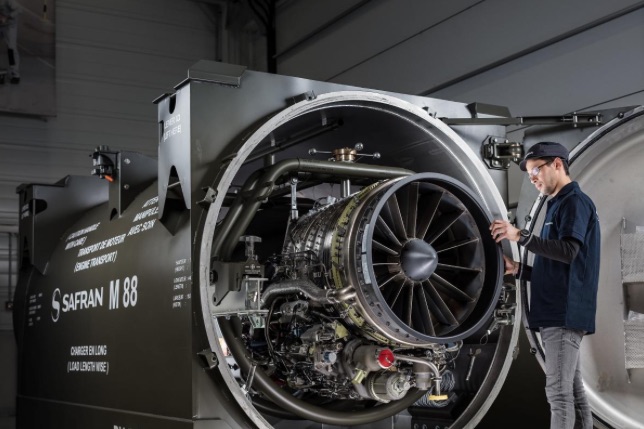By Ajai Shukla
Business Standard, 6th July 23
The ground could be shifting with respect to India’s bold agenda to develop its own indigenous jet engines that will power Indian fighter jets in protecting Indian airspace.
Ahead of Prime Minister Narendra Modi’s visit to France in 2015, sections of the Indian media had announced that New Delhi and Paris would reach a government-to-government agreement for buying 36 Rafale fighters for the Indian Air Force (IAF).
As predicted, Modi and French President Francois Hollande announced the controversial sale of 36 Rafales for Euro 7.8 billion.
As Modi prepares to visit Paris again on July 13, sections of the Indian media have announced that the government of France – now one of India’s closest strategic partners – has cleared French engine-maker Safran to jointly design, develop, test, manufacture and certify an engine to power India’s futuristic, fifth-generation Advanced Medium Combat Aircraft (AMCA).
There will be controversy over an Indo-French engine for the AMCA. The relationship between India’s Defence R&D Organisation (DRDO) and French firm, Safran (earlier called Snecma), was vitiated during fruitless years of discussions on co-developing an uprated Kaveri.
Snecma declined to share key technologies, such as single crystal blades and high temperature materials for the engine’s combustion chamber.
While the Safran engine might have found a use in the Tejas Mark 1, Mark 1A and Mark 2 fighters, the French company was reluctant to work with the Gas Turbine Research Establishment (GTRE) – the DRDO laboratory that is developing the Kaveri engine for the Tejas.
Meanwhile, the first foreign original equipment manufacturer (OEM) to have offered to co-design and co-develop an engine for the AMCA is British firm, Rolls-Royce. The Rolls-Royce engine could also power the indigenous, twin-engine, deck-based fighter (TED-BF) that would operate off Indian aircraft carriers.
The Kaveri engine, spurned for years by Safran (Snecma), is slated to find a use in powering the DRDO’s high-performance autonomous vehicle, eponymously named the Unmanned Combat Aerial Vehicle (UCAV).
The Kaveri’s 50 kiloNewtons (kN) thrust will suffice for the unmanned UCAV, but it does not have the performance and reliability to power the manned Tejas fighter.
Eventually, the Indian fighters will be equipped with US-built General Electric (GE) engines: The Tejas Mark 1 and 1A fighters will sport GE F-404IN engines. The IAF has signed a Rs 5,375 crore contract with GE for 99 F-404IN engines.
Meanwhile, the more powerful GE F-414 engines will power the Tejas Mark 2.
Over the coming decade, India’s military is likely to buy almost one thousand engines for fighter aircraft alone. These will include 228 engines for 114 multi-role fighters, 83 engines for 83 Tejas Mark 1A fighters, 126 for Tejas Mark 2 fighters, 294 engines for 147 twin-engine and 117 engines for 57 twin-engine Multi-Role Carrier Borne Aircraft.
Sources close to Snecma say it is offering a completely new engine that complies with stealth requirements. Reportedly, delivery of the engine will take 10 years from the signing of the contract. Safran is sweetening the offer by setting up a centre of excellence in gas turbine technology in India.
Modi will arrive in Paris on July 13, and will hold bilateral talks with the French president the same day. On July 14, Modi will watch the Bastille Day air force display. The IAF’s Rafale fighter will be participating in the fly-past.







-1.png)













No comments:
Post a Comment